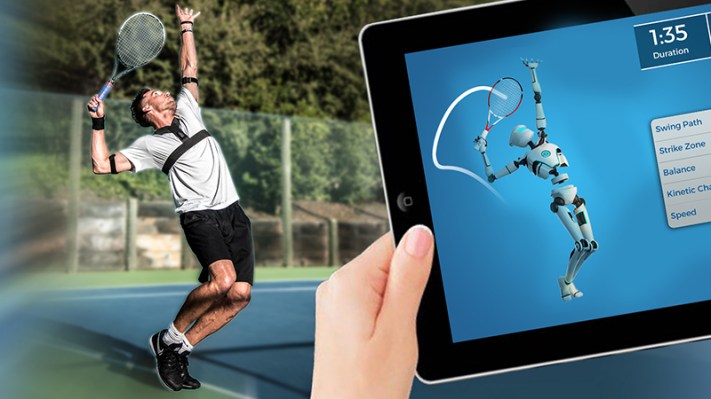TuringSense announced today that it’s closed a $3 million early funding round, an investment that brings the Bay area-based sports tracker startup’s total investment to $6 million. The company’s entering a crowded space, dominated by the likes Zepp, which has scored some high profile partnerships with major league sports and high profile players like Mike Trout and David Ortiz.
But TuringSense is building a system it’s convinced will take tracking a step further with a multi-sensor system and AI-based coaching designed to take the next logical step by actively coaching users on how to improve their play. And its enlisted ex-pats from competitors like Zepp and Fitbit to help it do so.
“We believe we can do better, combining the hardware with more software – in particular, artificial intelligence to teach users new skills,” the startup’s CEO Joe Chamdani told TechCrunch in a conversation ahead of today’s announcement. “[We aim] to not just present the user with data, but to guide them in whatever activity and sports they want to learn.”
The company is planning the launch of its first hardware for Q3. Pivot Tennis is currently undergoing pilot testing, out in the hands and on the arms of Indiegogo backers. When the system does arrive, it’s going to run around $399 for set – pricing that puts in an entirely different category that Zepp’s $100 racket-based sensor.
While the company explains that the price will come down as it ramps up manufacturing, the price point is going to be pretty steep if it hopes to bring players on-board with a still unproven system. I had a brief demo of the system’s software, and from what I saw, it’s compelling but unfinished. Utilizing multiple sensors with accelerometers, magnetometers and gyroscopes, it’s able to create a rough outline of the wearer’s body position with a skeletal structure similar to what you might see with a motion capture suit.
The company apparently built its own proprietary wireless protocol so the sensors are able to communicate with one another and determine their relative position without a lot of set up. The other upshot here is that the Pivot sensors can be used for multiple sports. You just have to switch up the software. A soccer-based system has already been announced and more sports are in the works.
The five-sensor system that will ship with the tennis set only takes care of the upper body. The system is modular, though, which means users can keep adding sensors to get a fuller picture of their swing, though with the aforementioned setup price, things are going to start to get pretty pricey, pretty quickly. And while the company points out that, well, everything is expensive when you’re a tennis player, that price adds up to a couple of training sessions for most players.
The Pivot system analyzes the body position relative to the ideal and then offers up coaching tips to help improve. From the company’s press material,
TuringSense’s patent-pending PIVOT technology is built from the ground up around both capture of 3D biomechanical data of a user’s movement and creation of a “motion library” of reference motions describing optimal movement.
That information is delivered over a connected device, or through Bluetooth headphones, if you happen to be wearing a pair while playing – that honestly sounds like the best setup, in order to correct aspects of your swing in real-time.
Given the initial pricing, the company’s best bet is probably going after teams, training facilities and other institutions with money to spend on pricey training equipment. There’s also likely some opportunity in the rental space. And the company has taken a step in that direction, enlisting high-profile tennis coach Nick Bollettieri to help promote the system, but the company’s dreams of going truly mainstream with Pivot are likely a ways off.
